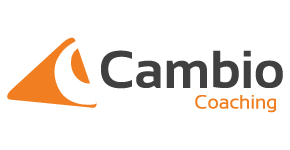
In professional settings where the stakes are high, most of us hate getting asked a question to which we don’t know the answer. We’ll think: What if I stumble? What if I look like I don’t know what I’m talking about? What if they know that I don’t know the answer!?
I’m here to tell you that even if those worries materialize when you get asked a tough question during a Question & Answer session, it’s not the end of the world. More importantly, there are things you can do to mitigate the risk of looking or feeling foolish.
Consider the motivation for the question
In a setting where we’re being asked questions, it can help us to think about the person doing the asking. So often when we’re so focused on how we feel or how we may appear to others, we fail to realize that others are much less concerned about us than they are about themselves. Yes, it’s possible they may actually want to test your knowledge level on a particular subject, in which case knowing the answer represents the best outcome for you. But I’d propose that most questions come from different places. Let’s look at some possibilities.
- “Hey everybody, look at me!” – Someone might pose a tough question (a “zinger”) to make themselves look smart in front of the rest of the group—a tactic that can easily backfire if they appear to bully the person they’re asking the question to.
- “I’m just curious” – Someone may have a genuine curiosity about what they’re asking but have no expectation that you’d know the answer. They’d be delighted if you happen to know, but you wouldn’t disappoint them if you don’t.
- “I want to see how you handle this” – A manager or an executive may not expect you to know the answer but wants to see how you react in a pressure situation because they’re interested in developing your for a more important leadership role. In this case, answering the actual question is secondary to keeping your cool.
Try out new ways of answering questions
While it’s helpful to consider where someone is coming from when they ask you a question, sooner or later you need to respond—hopefully in a confident, positive way. So how can you do that? Consider these 3 tips:
- Focus on the person asking the question – Acknowledge and honor their question by paraphrasing it. “What I’m hearing you ask is ______________.” Also, give them whatever credit you can for the quality of their question. “That’s a great question that really gets at the key issue of ______________.” Take it from a coach: sometimes people just want to talk and be heard, in which case acknowledging them goes a long way.
- Focus on what you DO know – I’m not proposing that you fake your way through answering a question to which you don’t know the answer, but sometimes we can focus so much on our NOT knowing that we needlessly psych ourselves out! Instead, quickly acknowledge what you don’t know, but move on to talk about what you do know. “It’s an interesting question that we didn’t really consider, but I’ll tell you that in the work we did, we found that ______________.”
- Invite others to weigh in – This tactic can work well in a presentation setting where you might have other folks with opinions on the matter. If you have a sense for what you want to respond, you can buy some time and get some additional input by asking others in the group to weigh in. “I have an opinion on that question, but I’d love to hear what other folks think about it before I respond.” You need to be careful not to come off as evasive or “too cute,” but the move has the potential to position you as someone who invites collaboration and can incorporate others’ input into your thinking.
As unnerving as getting tough questions in a high-stakes, public, Q&A setting can be, getting good at addressing them can be a matter of focus and practice. Stretch your perspective to consider where the person asking the question is coming from; you may discover that their question has more to do with them than with you. And give yourself a chance to try out different approaches in how you handle Q&A, and watch your confidence grow.
Guillermo Villar is principal coach with Cambio Coaching. He helps high-achieving individuals and teams communicate with intention to get the business results they want. If you’re interested in working with Guillermo, sign up for a free meeting to explore how he can help.
